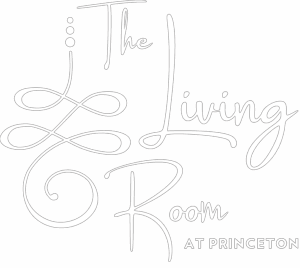When someone you love lives with substance abuse or addiction, it might be confusing as to how to help them get the help they need to begin their recovery journey. In many cases, friends and family members of an addicted person may stage an intervention to help convince them to seek addiction treatment.
Interventions are often effective at getting addicted people to recognize that they need immediate help. Staging an intervention requires planning, preparation, and practice– as well as professional support.
This article will detail what an intervention is, the stages of planning one, and how to find the professional support you need to be successful. For more information about addiction interventions in New Jersey, contact the specialists at Living Room NJ today.
What is an Intervention?
An intervention is a thoughtfully planned event. During interventions in New Jersey, friends and family members of someone living with drug or alcohol abuse gather to show a united front of love, support, and boundaries. The ultimate goal of an addiction intervention is to convince an addicted person to seek treatment immediately. Ideally, the person at the center of the intervention would be admitted to rehab as soon as the intervention is over.
An intervention’s most critical aspects are careful planning and thoughtful preparation. Friends and family members should be careful to choose a time, place, and date that provides privacy and safety to all involved in the intervention.
Focusing on the positive aspects of a person’s strengths and resources is essential during addiction interventions in New Jersey. An intervention should be calm, controlled, and goal-oriented.
Of course, this can be difficult because addiction can be a very emotional subject. People may feel angry, anxious, frustrated, or hopeless that their loved one can ever get better. However, during an intervention, it is essential to state facts and focus on the future Instead of dwelling on worries, resentments, or feelings of despair.
During an intervention, family members can present their loved one with options and consequences for not seeking treatment. However, they should not threaten their loved ones out of anger or fear. Working with a trained interventionist can make this easier for people who may feel overwhelmed by their loved one’s substance abuse.
How to Stage an Intervention in New Jersey
Follow these steps to stage an intervention in New Jersey that will most likely have the desired outcome.
Get Help
Contact a professional interventionist, an addiction counselor, a social worker, or a doctor who can support you and your intervention team before, during, and after the event. Staging an addiction intervention in New Jersey should not be one person’s job alone. Instead, it should be a group effort, and everyone involved should be on the same page.
Find your team
Deciding who will be involved in an intervention is one of the most critical aspects of planning. Typically, only family members, close friends, and coworkers should be included in the intervention. It is important to ask those struggling with their own substance abuse issues not to attend the intervention.
Create a plan
Planning addiction interventions in New Jersey involves making practical decisions about where, when, and how the intervention will occur. Choose a location that will allow you enough space and privacy during the intervention for everyone to feel comfortable. Choose a time when your loved one is least likely to be intoxicated.
Educate yourself
Learn as much as you can about addiction, recovery, and interventions. Talk to addiction counselors, read books about addiction, and find reliable information from trustworthy online sources. The more you and your intervention team understand about addiction, the better you’ll be at supporting your addicted loved one.
Write your statement
During an intervention, each person will have the chance to read an impact statement. This statement should focus on how your addicted loved one’s actions have affected you and your relationship with them. Write your impact statement ahead of time and practice reading it to limit the risk of being overwhelmed during the intervention.
Offer support
Each person on your intervention team must decide how they’ll support their loved one as they navigate recovery. Finding an addiction treatment program is critical, but it is only the first step. It’s important to continue supporting your loved one as they go through treatment and beyond. This could mean helping with practical things, such as childcare and caring for the house, or offering unconditional emotional support.
Decide your boundaries
You must prepare for the chance that your loved one will refuse to go to treatment. Everyone in your intervention team must decide on clear consequences that will happen if your loved one refuses help and be prepared to follow through.
Practice
Rehearse the intervention beforehand to reduce the risk it will go off track when your addicted loved one is there. Create a schedule for the intervention and practice it from start to finish if you can.
Set realistic expectations
While it’s hard to consider, your loved one may refuse to get help. This can leave people feeling frustrated or distressed, but it is crucial to stick to your plan. Be prepared to follow through on the consequences you decided as a group.
Working with a professional interventionist can help you plan the most effective intervention possible. An interventionist can offer valuable support and insights as you stage an intervention in New Jersey.
Learn About Staging Interventions in New Jersey
Interventions in New Jersey can be effective at getting people to seek treatment for substance abuse and addiction. Learn how to stage an intervention in New Jersey by contacting the Living Room NJ specialists now.

